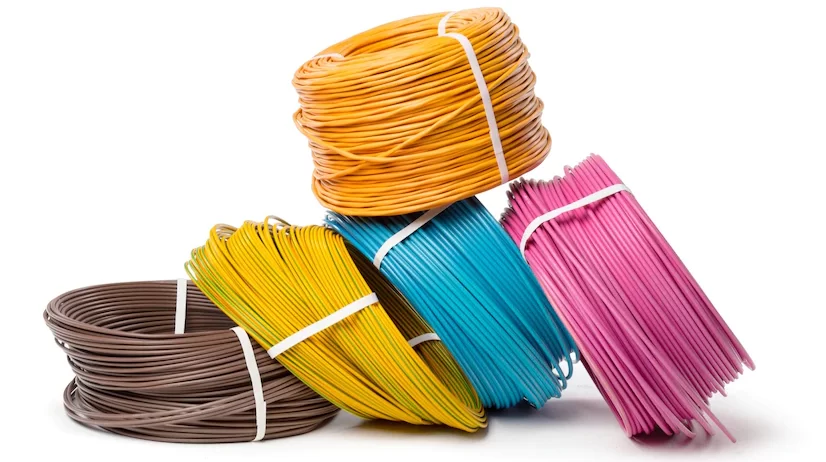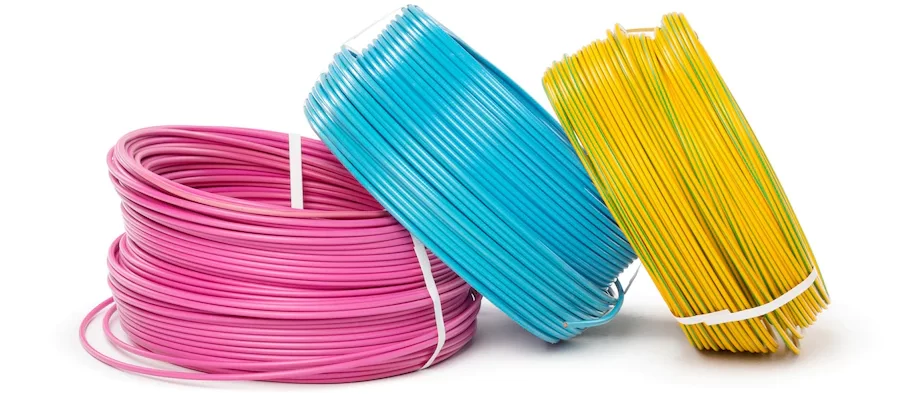Why choose TME as your Online Resistance Wire Supplier?
- 1 What is a resistance wire?
- 1.1 How can TME help you get a resistance wire that fits your specifications?
- 1.2 How does resistance wire work?
- 2 How you can choose resistance wire for your application
- 2.1 Material
- 2.2 Diameter
- 2.3 External Temperature
- 3 What are the applications of resistance wires?
- 4 Conclusion
Most of us know that resistance wires are used in electrical circuits, but have you ever wondered why?
We will answer that and more, so buckle up, everyone, as we will take a refresher on high school Physics. And don’t worry; we will keep it practical, which means you can utilize this information, get your resistance wires online, and use them to your advantage! So, here we go!
What is a resistance wire?
As the name suggests, a resistance wire resists the current flow in an electrical circuit. Otherwise, our circuits would fry up, and we don’t want that. So, we use a resistance wire with different resistances to ensure the current never exceeds unsafe values in a circuit.
While the wire resists current, it heats itself, and sometimes, we utilize this property of resistance wires in heating appliances.
How can TME help you get a resistance wire that fits your specifications?
As electrical circuits are designed for various use cases, you might need versatility in the resistance values of your wires. You might need wires of different lengths or diameters or with varying values of Ω/m.
The good news is that TME can help you with that. Their website offers wires with resistance 0.764 Ω/m, 1.19 Ω/m, to up to 10.7 Ω/m and 19.7 Ω/m. Wires with different diameters are also available at TME, and you can get your hands on wires with diameters 0.3, 0.4, 0.5 to 1, 1.2, and 1.5mm.
How does resistance wire work?
When current is made to pass through the resistance wire, the electrons inside it carry the current. While the electrons are transferring the current, they collide among themselves and with the walls of the wire, which generates heat.
As more heat is generated, the movements of electrons become more violent, the wire heats up more, and the cycle continues.
These collisions hinder the flow of current and thereby resist the current.
These collisions result in energy loss, making the overall system less efficient. So, we need to ensure we have resistance wires to the exact specifications so we do not waste more energy than required.
This efficiency is also affected by the quality of the resistance wire. Therefore, you would also need to get your hands on high-quality electronic components. TME maintains an all-around stock of resistance wires, which undergo rigorous quality inspections to ensure no malfunctioning resistance wire is ever shipped. These quality inspections are backed up by several quality certifications acquired by TME, including ISO:9001 and ISO:14001.
How you can choose resistance wire for your application
Factors that influence the resistance of the wire
To select a resistance wire for your work, you must know the factors influencing its resistivity. There are three main factors, discussed briefly below:
Material
Different materials have different electrical resistances. For example, Nichrome has high electrical resistance compared to other resistant wire materials such as copper, aluminium, stainless steel, etc.
Diameter
Wires with a larger diameter will allow more current to pass through them (because the more free area would result in fewer collisions), while a wire with a smaller diameter will have higher resistance.
External Temperature
External conditions such as temperature will influence the wire’s resistance. Higher temperatures typically cause more violent electron movements, which result in more collisions.
What are the applications of resistance wires?
Although resistance wires are used in a plethora of applications. They are also used in one form or the other in electrical devices that generate heat. Here are a few popular applications of resistance wires:
Heating Elements
Resistance wires are frequently used as heating elements in devices such as toasters, ovens, hair dryers, and electric heaters.
Temperature Sensors
Resistance wires are often used to measure temperature in thermostats and ovens. They can also complete an electrical circuit that we want to make sensitive to temperature changes.
Electrical Circuits
Of course, resistance wires are used in electrical circuits to control current flow. They enable us to control and manipulate the current flowing through an electrical circuit.
Conclusion
Resistance wires are essential in electrical devices, if not the most important! They limit the current flow inside an electrical circuit so the circuits don’t fry up.
While the resistance wire controls the current flow, it also serves another useful purpose. It heats itself, which we can utilize in heating applications such as toasters, ovens, hair dryers, etc.
Resistance wires are used for many purposes, so they must be adaptable. We don’t want to go overboard with resistance wire, as it would result in energy loss and make systems inefficient. Therefore, we need resistance wires that match the exact specifications and meet all quality standards. This is where TME can help you with superior-quality resistance wires.
Resistance Wires at TME
TME was founded in 1989 and has been offering a wide variety of electrical components, including resistance wires, for more than 33 years.
On their website, you can find great versatility for resistance wires. The resistances for the available cables can be as low as 0.764 Ω/m to as high as 19.1 Ω/m. They are also available for a wide range of temperatures. These resistance wires will work perfectly in temperatures -100°C – 1300°C.
TME offers high-quality products that meet international standards, including ISO 9001 and ISO 14001. It provides 400,000 products and electronic components and sends 5,000 shipments daily to 150+ countries, including Germany, the USA, the UK, Italy, Spain, and, of course, its home country, Poland.


















